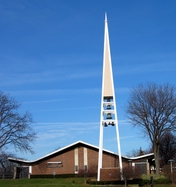“Big Boy College” and Community College Voices
 Recently, someone posted a message in a public forum informing readers that his new semester at “big boy college” was about to begin. Since transferring from a community college, he periodically posts about his “big boy college” experiences; none of which equal many of the significant advantages he received as a student at his community college; advantages he could not hope to experience at “big boy college.” Yet, he continues to take a demeaning stance toward his community college and the professors with whom he studied.
Recently, someone posted a message in a public forum informing readers that his new semester at “big boy college” was about to begin. Since transferring from a community college, he periodically posts about his “big boy college” experiences; none of which equal many of the significant advantages he received as a student at his community college; advantages he could not hope to experience at “big boy college.” Yet, he continues to take a demeaning stance toward his community college and the professors with whom he studied.
During one spring semester, a university student taking one of my courses informed me that certain requirements for the class were not necessary at his university. My response, “Maybe our expectations are higher?” He is not the first university student with whom I have worked who was anticipating a blow off class because it was offered by a community college. University students frequently struggle to meet community college quality standards when they attempt to pick up a couple of easy classes during spring semester.
When I first started teaching at Schoolcraft College, students would refer to our institution as Haggerty High; a reference to the road on which we are located. Then, the economy faltered and students took a serious look at their education options. They began to realize that Haggerty High was not something on which they had to settle because they couldn’t afford a good college. Although inexpensive, Schoolcraft College provides them with a quality education.
What is more disturbing than when students assume that community colleges are inferior is when community college faculty members conduct themselves as if we are inferior. Last year, while coordinating a digital literacy competition for Michigan community college students, I arranged to have three university professors serve as judges: a cofounder of HASTAC who was then teaching at Duke University, the Director and CEO of Hybrid Pedagogy who teaches at the University of Wisconsin at Madison, and a former Andrew W. Mellow Fellow who is now teaching at Washington State University. After the judges were announced, a faculty member sent us an e-mail asking “What can the community college student from an open-admissions school like [college name deleted] hope for from that level of judging?”
Ironically, when inviting these university professors to judge our contest, I was not as concerned about what our students could learn from them as I was about what those judges could learn from our students. The judges provided feedback that was extremely helpful for our students, but—more importantly—they were able to interact with and to see the quality work produced by community college students. They have since incorporated that knowledge into their work promoting digital literacy.
While discussing vital educational issues, the voices of community college students are practically non-existent. This is a problem that we can easily change.
Frequently, my students post comments to on-line articles. Currently, they are joining discussions that are taking place on Hybrid Pedagogy. While doing public writing, community college students have no difficulty holding their own with university students, faculty members, and administrators.
In a conversation I had with the author of two of the Hybrid Pedagogy articles which my students are discussing, he commented, “I’m excited to read some student response to this subject.” He recognizes that while considering effective syllabi and the pedagogy of classroom discussions, student voices are vital. In fact, I often find student observations to be more perceptive than comments posted by faculty members and administrators.
Our students will either live up to or down to our expectations. When we believe their voices count, they believe that their voices count. When students engage in public writing, they are empowered. They learn that they are individuals who deserve to be taken seriously because they have serious contributions to make. The positive responses they receive from their contributions in the public square confirm the faith we have in them and they have in themselves.
Students don’t have to attend “big boy college” to make a difference and we do a disservice to our community college students when we don’t push them to reach their potential. Even though our expectations are high, they remain reachable.
- –Steven L. Berg, PhD
Photo Caption: Schoolcraft College bell tower.
[…] As I have previously argued, “While discussing vital educational issues, the voices of community college students are […]